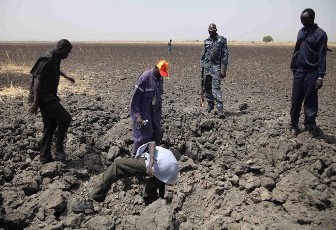Decisive round of oil talks between Sudan & South Sudan on Tuesday
March 4, 2012 (KHARTOUM) – The governments of Sudan and South Sudan are set to start a decisive round of talks on oil in the Ethiopian capital on Tuesday but with slim prospects of success.

But the figure was deemed excessive by South Sudanese negotiators in the past who insist on a transit fee of $0.63 and $0.69 for each of two pipelines, along with third-party fees of between $5.50-$7.40 per barrel, according to breakdown reported by the Financial Times.
The landlocked South suspended its oil production last month after Khartoum started seizing some the of its oil to pay for what it says are past due invoices.
Despite regional and international pressure, the two sides refused to reverse the unilateral decisions they made with regards to oil.
The African Union High Level Implementation Panel (AUHIP) led by former South African president Thabo Mbeki has put a 10 day time frame on the current round of talks, though sources in Khartoum expect the negotiations to end before that.
The sources said they expect AUHIP to push for a compromise involving payment by Juba of $150 million to Khartoum for three months in return for exporting its oil without it being confiscated or asking for additional fees.
China might join the negotiations should the talks progress, sources added.
It is not clear what the next step would be if talks fail again. Sudan accused Juba of seeking to strangle it economically by shutting down the oil.
South Sudan voted overwhelmingly to secede last year, the culmination of a 2005 peace agreement that ended decades of civil war.
At partition, three quarters of Sudan’s known oil reserves fell in South Sudan’s territory.
The South depends on oil for more than 90 percent of its revenues, while Khartoum’s finance minister said late last year that the loss of oil from the South left a budget shortfall of 30 percent.
(ST)
